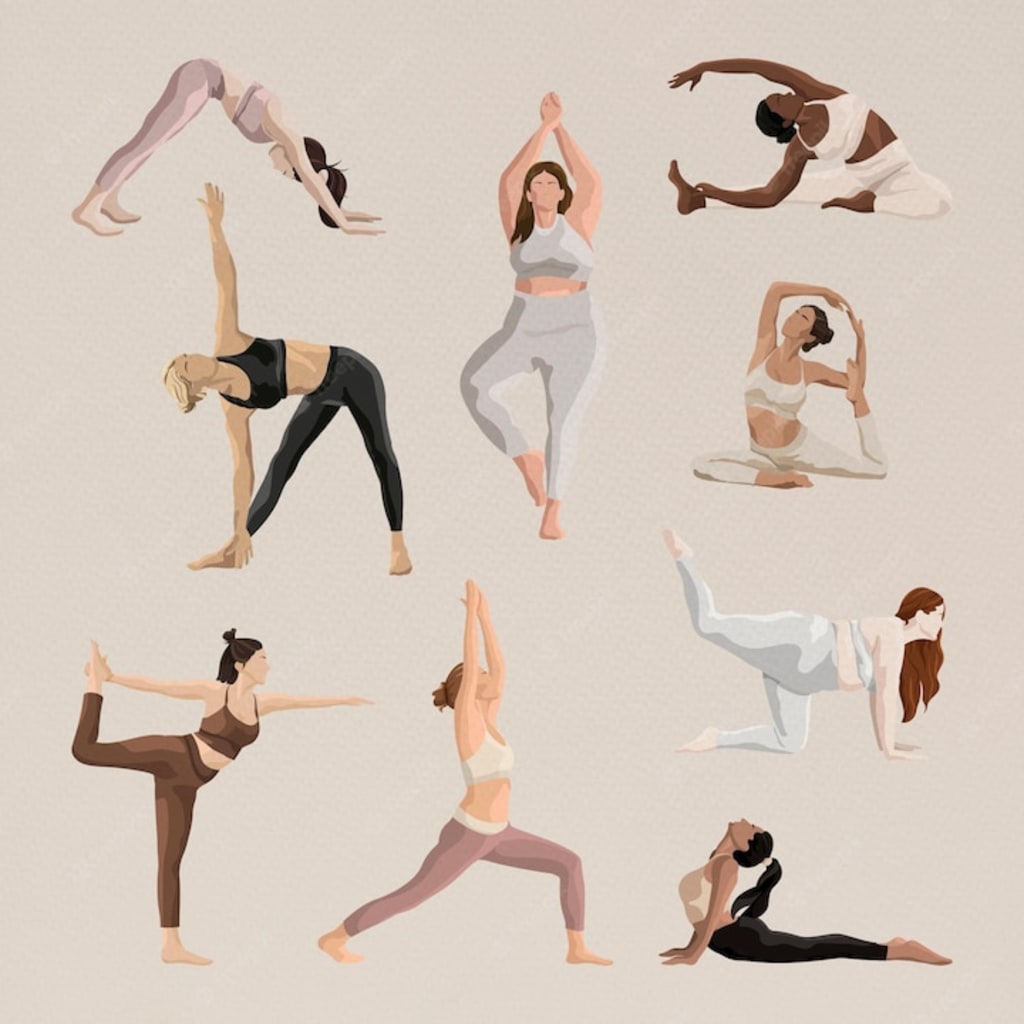The Power of Yoga: Improving Both Physical and Mental Health
Health

Introduction:
Briefly introduce the concept of yoga and its popularity in recent years
Mention that while yoga is often associated with physical exercise, it has numerous benefits for both physical and mental health
Section 1: Physical Benefits of Yoga
Discuss the ways in which yoga can improve physical health, such as by increasing flexibility and strength, improving balance, and reducing chronic pain
Cite relevant research studies or expert opinions to support these claims
Section 2: Mental Benefits of Yoga
Discuss the ways in which yoga can improve mental health, such as by reducing stress and anxiety, improving sleep, and boosting mood and well-being
Cite relevant research studies or expert opinions to support these claims
Section 3: Getting Started with Yoga
Provide tips and advice for beginners who are interested in trying yoga, including finding a class, choosing the right type of yoga, and setting realistic goals
Emphasize the importance of starting slow and being patient with oneself, as yoga can be challenging at first
Mention that with consistent practice, yoga can become a meaningful part of one's self-care routine, leading to improved health and well-being.
Body:
Section 1: Physical Benefits of Yoga
Yoga is a type of exercise that focuses on breath control, body postures, and meditation. It has gained immense popularity over the past few years, with people all over the world incorporating it into their daily lives. While many people view yoga as a physical exercise, it also has numerous benefits for physical health. According to a study published in the Journal of Physical Activity and Health, yoga can improve flexibility, balance, and strength. The various poses and stretches involved in yoga help to stretch and strengthen the muscles, leading to better overall fitness.
In addition to these physical benefits, yoga can also be helpful for individuals who suffer from chronic pain. A study published in the Annals of Internal Medicine found that practicing yoga can reduce chronic lower back pain. Similarly, a study published in the Journal of Alternative and Complementary Medicine found that yoga can improve joint pain and stiffness in people with osteoarthritis. These findings suggest that yoga can be an effective complementary therapy for individuals with chronic pain.
Section 2:
Mental Benefits of Yoga
While the physical benefits of yoga are well-documented, the mental benefits of yoga are equally important. In today's fast-paced world, stress and anxiety have become common problems that many people face. According to a study published in the Journal of Alternative and Complementary Medicine, practicing yoga can reduce perceived stress and anxiety levels. This may be due to the fact that yoga involves controlled breathing, which has been shown to have a calming effect on the mind and body.
Additionally, yoga can improve sleep quality, according to a study published in the Journal of Clinical Psychology. This is likely due to the fact that yoga promotes relaxation and reduces stress, which can make it easier to fall asleep and stay asleep. Yoga has also been shown to boost mood and overall well-being. A study published in the Journal of Evidence-Based Complementary and Alternative Medicine found that practicing yoga can improve symptoms of depression and anxiety.
Section 3:
Getting Started with Yoga
If you're interested in trying yoga, there are a few things to keep in mind. First, it's important to find a class or instructor that's right for you. There are many different types of yoga, each with its own unique focus and style. It's a good idea to research the different types of yoga and find one that appeals to you. Additionally, it's important to set realistic goals for yourself. Yoga can be challenging at first, and it's important to be patient with yourself and take things slow.
Conclusion:
In conclusion, the benefits of practicing yoga for both physical and mental health are well-documented. By improving flexibility, balance, and strength, as well as reducing chronic pain, yoga can improve overall physical health. At the same time, practicing yoga can reduce stress, anxiety, and depression, improve sleep quality, and boost mood and overall well-being. With so many benefits, it's no wonder that yoga has become such a popular practice. So why not give it a try? With the right instructor and a little patience, you may find that yoga becomes an important part of your self-care routine.






Comments
There are no comments for this story
Be the first to respond and start the conversation.